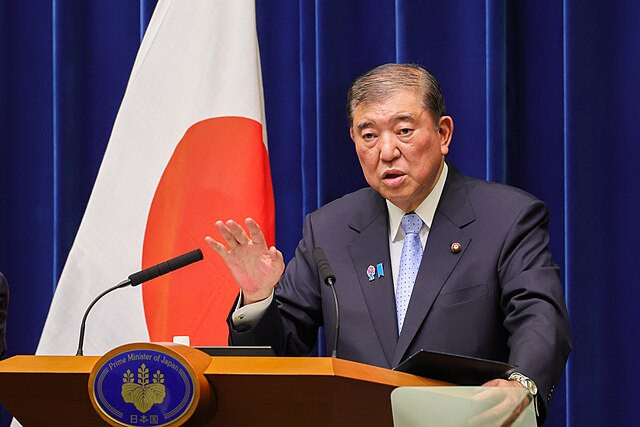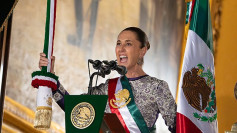Japan's ruling coalition suffered a sharp political setback Sunday after losing its majority in the upper house, deepening Prime Minister Shigeru Ishiba's political troubles and fueling uncertainty as the country faces critical trade negotiations with the United States.
The Liberal Democratic Party (LDP) and junior coalition partner Komeito secured 47 seats-short of the 50 needed to maintain a majority in the 248-seat upper chamber, where half the seats were up for election. The loss comes less than a year after the coalition also lost control of the more powerful lower house, leaving Ishiba's administration exposed to no-confidence motions and potential internal party challenges.
He "solemnly" accept this "harsh result," Ishiba told NHK after polls closed. He vowed to remain in office, telling TV Tokyo, "We are engaged in extremely critical tariff negotiations with the United States... it is only natural to devote our complete dedication and energy to realizing our national interests."
Japan faces a fast-approaching August 1 deadline to strike a trade deal with the U.S. or risk punitive tariffs. The country, the world's fourth-largest economy, is heavily reliant on exports to its largest trading partner.
The result reflects public discontent with Ishiba's handling of the economy, rising living costs, and a growing unease over immigration. Opposition parties advocating tax cuts and welfare expansion gained traction by targeting inflation pressures-particularly the surging cost of rice.
"The LDP was largely playing defense in this election, being on the wrong side of a key voter issue," said David Boling, director at Eurasia Group. "Polls show that most households want a cut to the consumption tax... Opposition parties seized on it and hammered that message home."
Jeffrey Hall, a lecturer in Japanese Studies at Kanda University, said that support for far-right parties, particularly the Sanseito party, had fractured the LDP's conservative base. "Prime Minister Ishiba is considered not conservative enough by many supporters of the former Prime Minister [Shinzo] Abe," he told BBC News.
Sanseito, which first gained traction on YouTube during the pandemic by spreading anti-vaccine conspiracy theories and promoting nationalist rhetoric, added 14 seats to its single-seat base. The party ran on a "Japanese First" platform and warned of a "silent invasion" by foreigners-language that once lingered on the fringes of Japanese politics.
"I am attending graduate school but there are no Japanese around me. All of them are foreigners," said Yu Nagai, a 25-year-old Sanseito voter in Tokyo. "When I look at the way compensation and money are spent on foreigners, I think that Japanese people are a bit disrespected."
Japan's foreign-born population reached a record 3.8 million last year-just under 3% of the population-but the visible increase, especially in urban centers and tourist destinations, has driven public debate on immigration.
In response, Ishiba last week launched a task force aimed at addressing "crimes or nuisance behaviours committed by some foreign nationals," including those tied to immigration and unpaid insurance.
The Constitutional Democratic Party placed second in the election, winning 22 seats. Analysts now anticipate that Ishiba may face leadership pressure from within the LDP, where figures such as Sanae Takaichi, Takayuki Kobayashi, and Shinjiro Koizumi are seen as potential successors.






